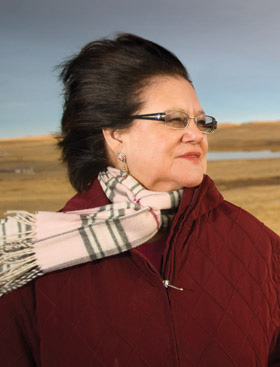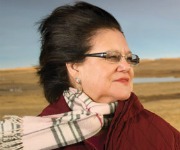 Elouise Cobell.Elouise Cobell, a small-town banker who took on the federal government for mismanaging Indian lands and won, has died at the age of 65.
Elouise Cobell.Elouise Cobell, a small-town banker who took on the federal government for mismanaging Indian lands and won, has died at the age of 65.
I first met Cobell in 1998, when reporting on Indian land issues for High Country News. She took me for a tour of her hometown of Browning, Mont., a windswept outpost on the Blackfeet Indian Reservation east of Glacier National Park. As she drove, she outlined for me a financial mess that stretched back a century and involved tens of billions of dollars.
For decades, she explained, the federal Bureau of Indian Affairs had leased her people’s land to oil, gas, timber, and farming interests. Under the 1887 Dawes Act, the bureau then collected the proceeds. And that’s where things went to shit.
When Cobell became the Blackfeet treasurer and took over the tribe’s records, she discovered that little of the money was making it to the people. An initial audit of Indian “trust accounts” nationwide by the international accounting firm Price-Waterhouse later found that $50 billion had gone missing. Cobell and her attorneys estimated the total amount to be more than $170 billion.
“This is our money. It came off our land,” Cobell told me. “Indians should really be getting radical and active about this.”
Her legal battle would span 15 years, but last year, the government relented, agreeing to pay $3.4 billion to settle the lawsuit. Roughly $1.5 billion will be distributed to Indian landowners. Most of the rest will go toward cleaning up the mess that spawned the lawsuit in the first place.
It is a pittance compared to the profits that oil and timber companies extracted from the land, but Cobell was vindicated nonetheless. “It is the best settlement possible,” she said at a ceremony announcing the final settlement in Washington, D.C., this summer. (For the whole, epic back story, read my longer piece about Indian lands here.)
Cobell was honored for her work with a MacArthur “genius” award and an eagle feather from her tribe — the mark of a Blackfeet warrior. She died of cancer this week, just months after her long battle against Native American exploitation came to an end.




